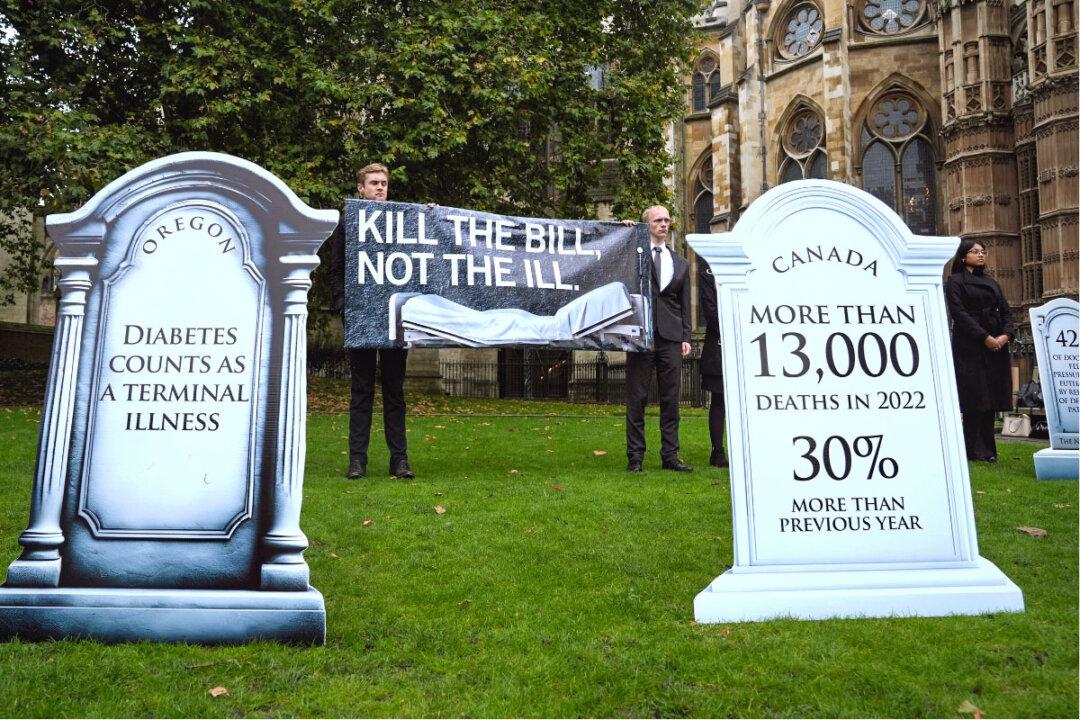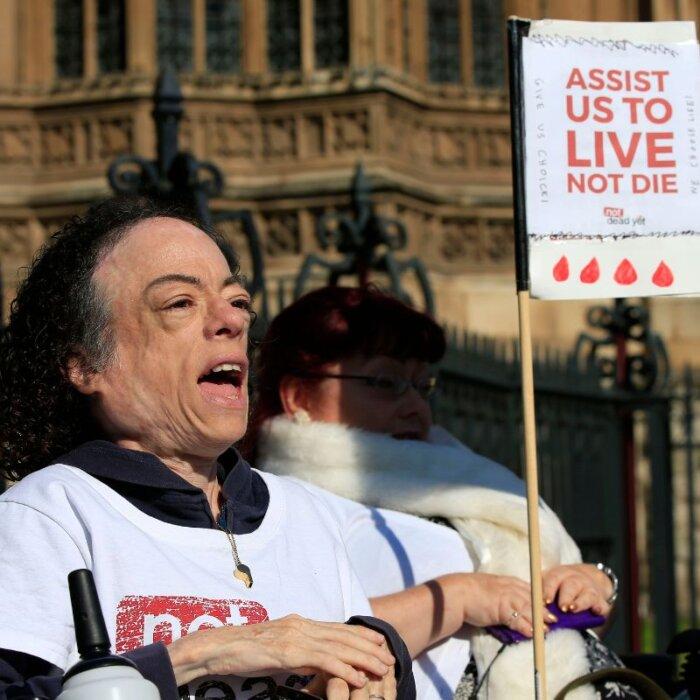The assisted suicide bill set to be debated in the House of Commons on Nov. 29 presents “serious safeguarding risks which are hard to look past,” a human rights group has said.
Liberty, which supports assisted suicide in principle, said the Terminally Ill Adults (End of Life) Bill is not precise enough and risks “evolving into something it was never intended to be.”
Akiko Hart, Liberty’s director, said: “What’s really important is to look not just at who might benefit from assisted dying, but at who this Bill might harm.
“Ultimately, the safeguards in this Bill are just not robust enough, and leave too many details to be decided later, particularly at a time when there is already great inequality in our healthcare system.”
She added that “the impact of these decisions often falls sharpest on disabled people and communities of colour, who are already less likely to receive good quality of care.”
The bill says that applications for state-assisted suicide can only be made by mentally-competent adults who are terminally ill with less than six months to live and who have a “settled and informed wish to end their own life.”
‘Rushed’
Earlier this month Kim Leadbeater unveiled her Private Members’ Bill, which she said would have “layers and layers of safeguards and protections“ which she believes ”will probably make it the most robust piece of legislation in the world.”Those advocating against a change in the law criticised the rushed nature of bill after it was published less than three weeks before the vote. But Leadbeater has said that there is “plenty of time” to look at the bill and it is within normal parliamentary time frames.
Hart also shared these concerns, saying that there were “too many details” which “have not gone through a process of scrutiny, and as a result are simply not precise enough.”
The Liberty director said, “It is clear to us that serious human rights concerns exist and are not being considered due to the rushed nature of this Bill.”
Cross-Party Issue
The positions on state-assisted suicide are not divided along straightforward or predictable ideological lines, with the secular and religious, and the right and left, voicing opposition to it.Parliament’s longest-serving MPs wrote that their concerns were both on the process of scrutinising the bill and its practice if it becomes law.
Abbott and Leigh noted that with only 18 days ahead of its second reading and vote, there lacked an opportunity for proper scrutiny from experts and from MPs. The pair said that the last time assisted suicide was debated in 2015, members had a full seven weeks before a vote on the proposal.
The veteran MPs also highlighted the makeup of the House of Commons, which included an “unprecedented number of new MPs,” with parliament having only have sat for 12 weeks by the time lawmakers vote on the Bill.
Besides the rushed process, Leigh and Abbott expressed concern that legalisation would inevitably put pressure on the vulnerable, such as the elderly and disabled who are terminally ill, to either be coerced by someone or feel internal pressure to end their lives.
“The only adequate safeguard is to keep the current law unchanged,” the pair argued, and called for more investment to improve health and social care, and palliative care.







